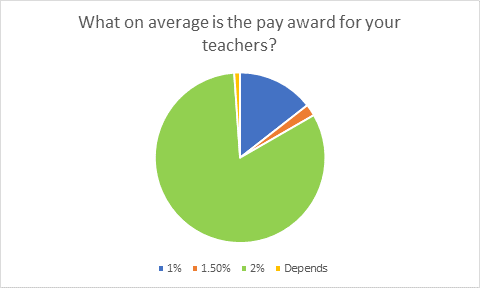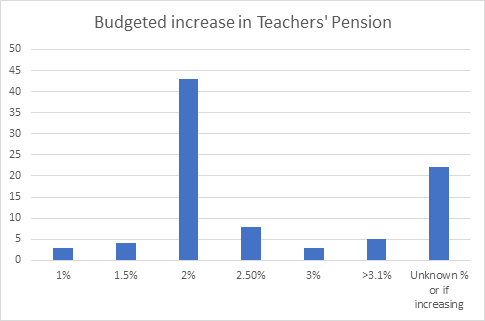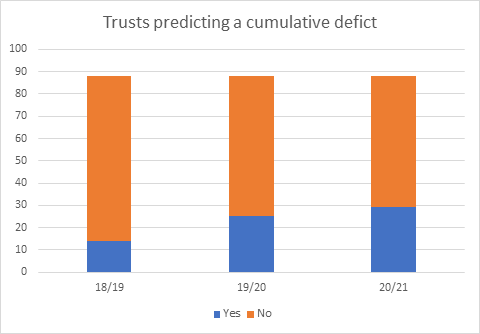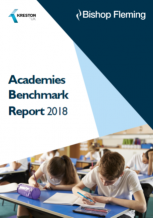With more than 200 members in our Academy team, we've got the capacity and expertise to meet your needs.
Budgets – what our academy clients are budgeting
18th July 2018
At our recent academy seminars we asked attendees a variety of questions related to budgets. We wanted to gain an understanding of the factors affecting your budgets, and what assumptions you have been using to set the budgets.
Starting with your biggest expense, staff costs, we wanted to understand your budgeting assumptions for the main cost pressures; teachers’ pay awards, admin staff pay awards, and any increases in Teachers Pensions’ contribution rates.
Teachers Pay
Whilst the pay award has not yet been announced, there did seem to be a general consensus of our clients with over 82% budgeting for a 2% increase in salaries. The only variance we saw was when this increase was being budgeted for, for example September or adopting later. Just one respondent said that the pay award would depend on financial performance. This certainly indicates the impression that we get from talking to our clients that few, if any, are yet willing to break away from nationally negotiated pay scales. These pay awards are broadly in line with the recommendations for assumptions made by ASCL earlier this year, although final confirmation is due soon.

Linked to the pay award for teachers will be the Teachers’ Pension contribution rates, which are due for review. A rise is expected to take effect from April 2019 and so will affect this coming years budget. There is no timeframe yet as to when the rates will be announced. For example, from our most recent benchmarking report, a 2% increase in contribution rates would equate to approximately £800, so this expense will soon add up across a Trust. 49% of our clients have mainly budgeted for a 2% increase in the rates, however there are still a number who have not yet budgeted for this rise and will need to take account of this cost pressure on top of their existing budgets.

Admin and support staff
Admin and support staff costs have also seen an increase announced, and as expected most Trusts are adopting the new NJC rates. Of the Trusts we asked, just 15% were either not budgeting for an increase, or had not yet considered it. Another factor in the NJC rates can be the effect on the lowest paid staff, and we have been told that often for these staff the increase can be much greater than 2%.

For the sector as whole has we know that budgets are tightening, there is no new money and that costs continue to increase. This is also demonstrated by the number of Trusts that are predicting a cumulative deficit in the coming years. The graph below demonstrates that although there is a relatively small number of trusts budgeting a deficit for 18/19, as reserves get further squeezed in the following two years the number of Trusts budgeting a deficit increases, from 14 in 18/19 to 29 in 20/21, a 107% increase.

Overall the responses we saw were broadly consistent with our expectations. However, we would strongly recommend that those that have prepared budgets inconsistent with the sector and ASCL assumptions guidelines, that your budgets are reviewed, assumptions noted and any impact of changing these assumptions is considered.





